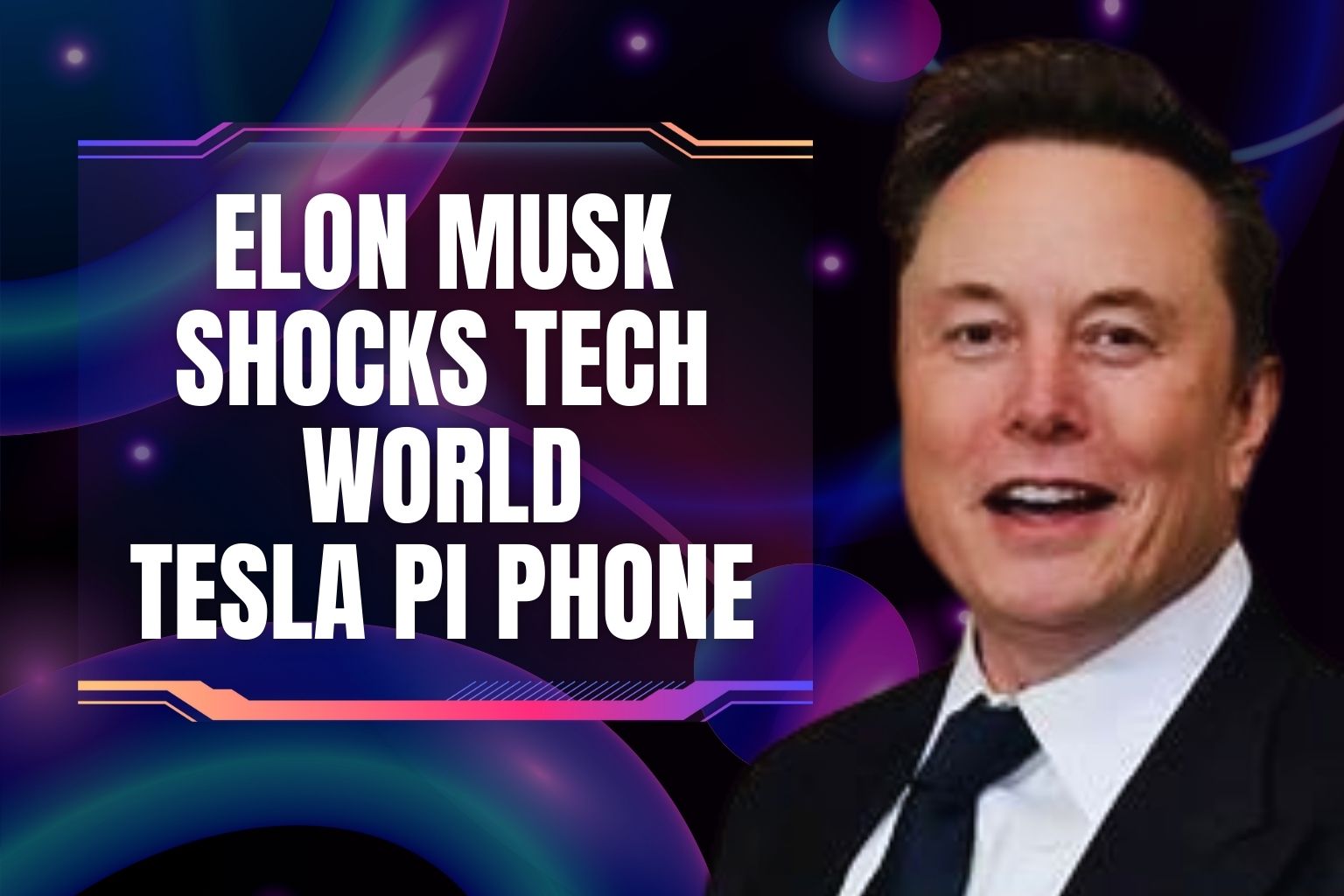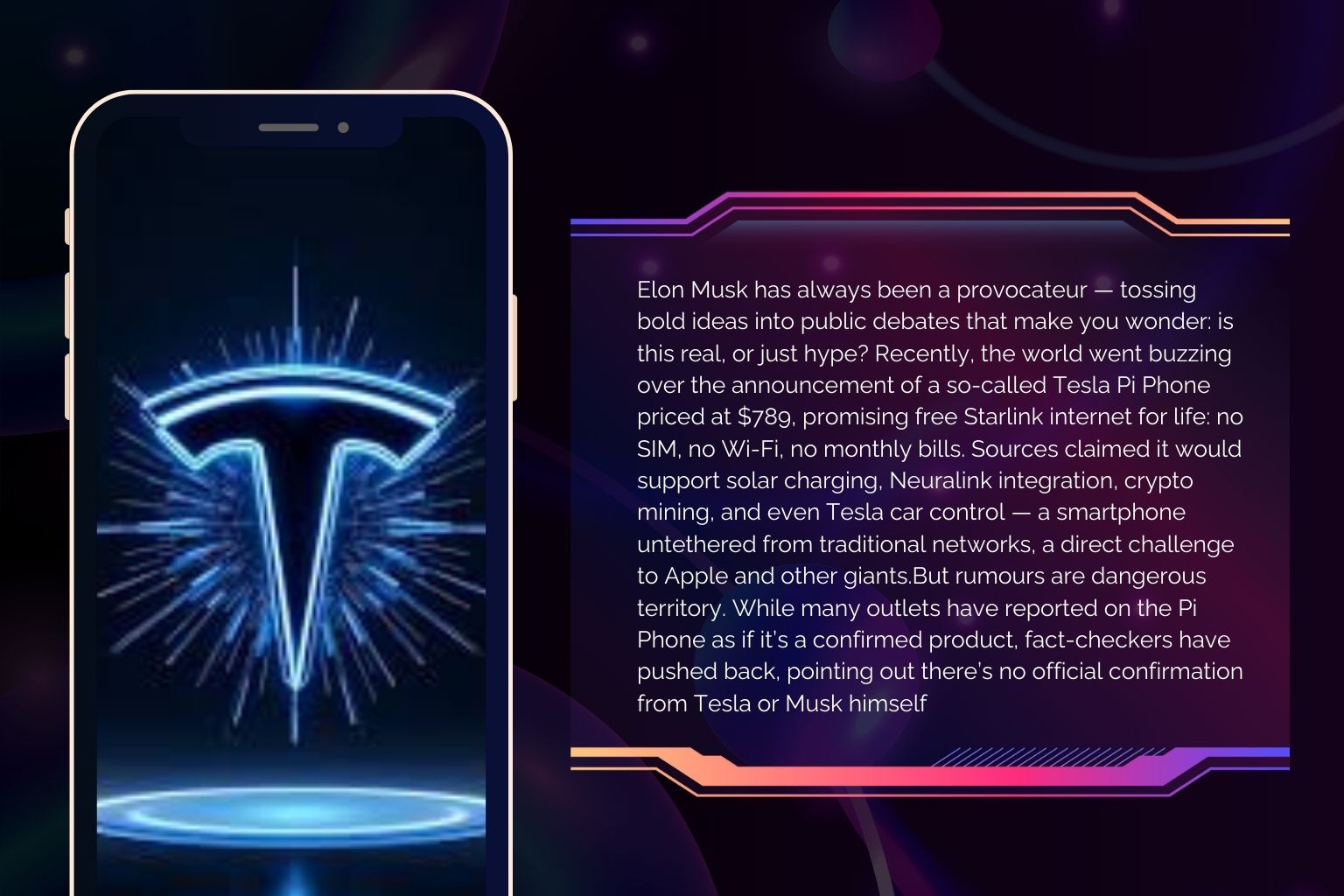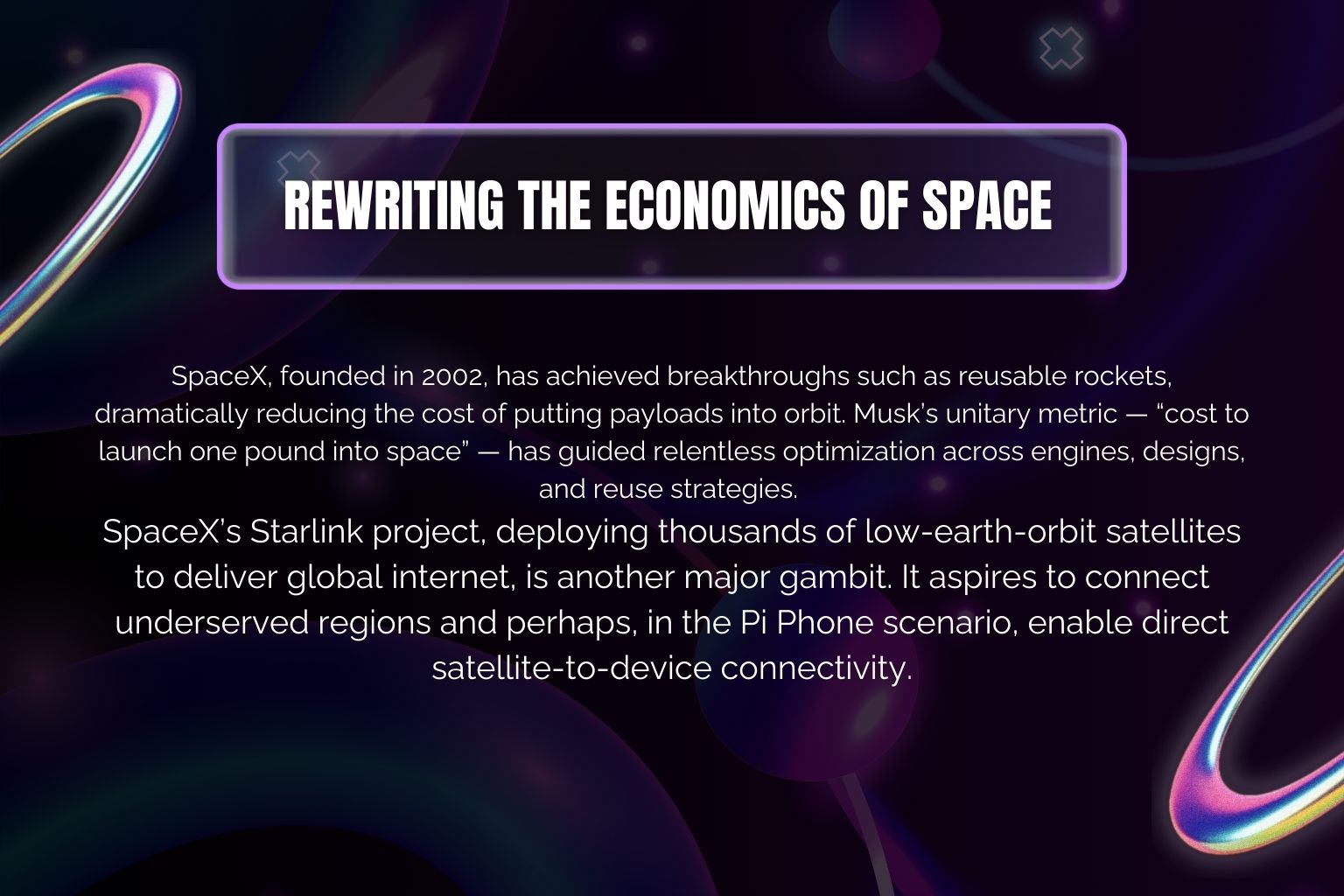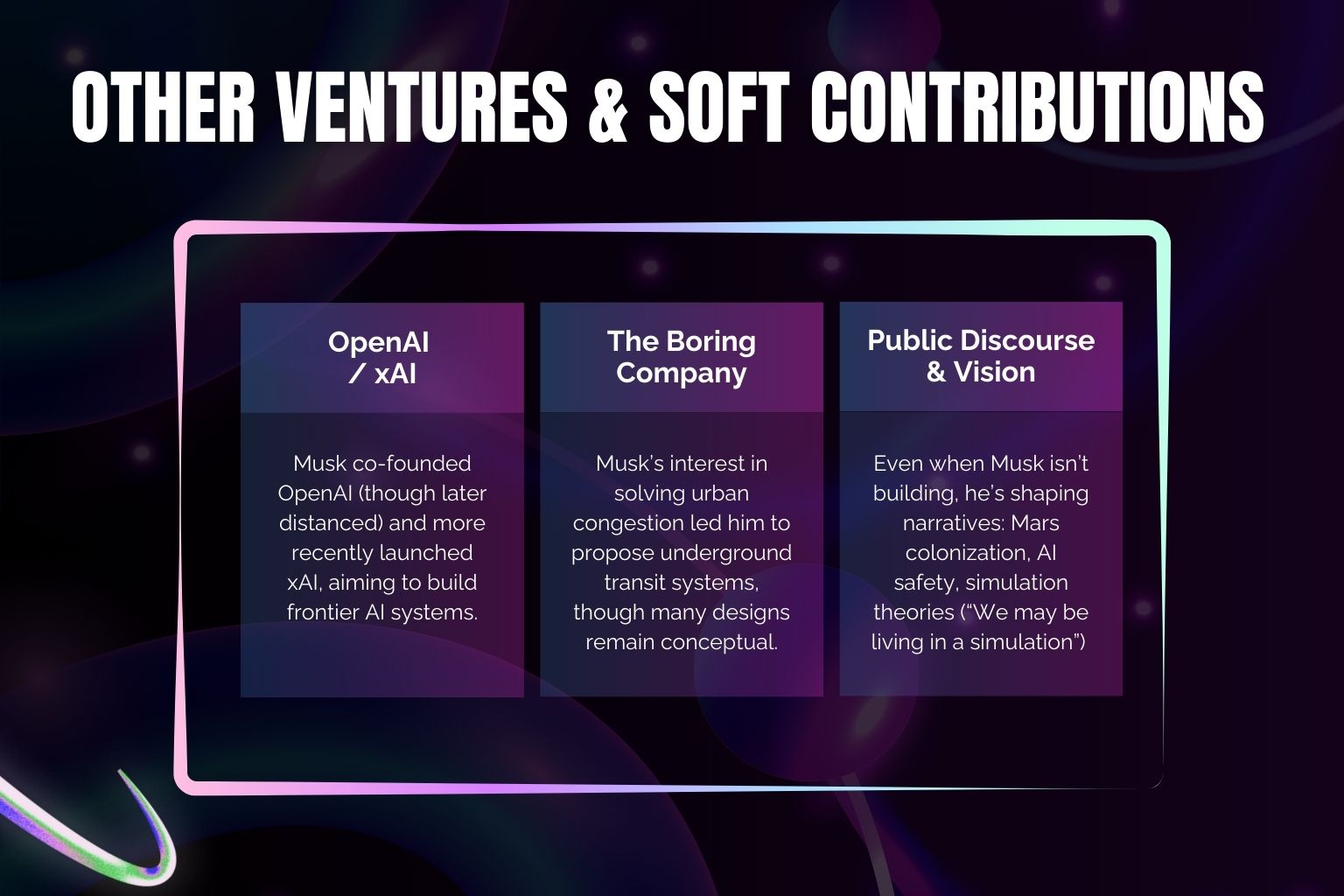Elon Musk Shocks Tech World: Tesla Pi Phone with Free Global Internet, Neuralink & Crypto Mining
Smash Code
Sep 29, 2025

Elon Musk has always been a provocateur — tossing bold ideas into public debates that make you wonder: is this real, or just hype? Recently, the world went buzzing over the announcement of a so-called Tesla Pi Phone priced at $789, promising free Starlink internet for life: no SIM, no Wi-Fi, no monthly bills. Sources claimed it would support solar charging, Neuralink integration, crypto mining, and even Tesla car control — a smartphone untethered from traditional networks, a direct challenge to Apple and other giants.
But rumours are dangerous territory. While many outlets have reported on the Pi Phone as if it’s a confirmed product, fact-checkers have pushed back, pointing out there’s no official confirmation from Tesla or Musk himself. (Hindustan Times) In a 2024 podcast with Joe Rogan, Musk explicitly said, “No, we’re not doing a phone.” (The Economic Times) Some analysts believe SpaceX is instead pursuing direct-to-cell satellite connectivity (i.e. letting ordinary phones connect to Starlink) rather than releasing a Tesla-branded phone per se. (International Business Times UK)
Still, the mere possibility of a Pi Phone has stirred imaginations — because it aligns with Musk’s track record of turning wild concepts into reality. To understand why this rumour resonates, let’s look at Musk’s major contributions to tech and then imagine what such innovations might create for our future.
Elon Musk’s Big Tech Footprints

Before projecting forward, it's worth pausing to reflect on what Musk has already changed in the world.
1. Tesla: Accelerating the Electric Vehicle Revolution
Tesla has arguably been his most visible legacy. Under Musk’s stewardship, Tesla helped transform electric cars from niche curiosities into mainstream contenders. The Model S, 3, X, and Y— along with advances in battery tech and charging infrastructure— have pushed legacy automakers to accelerate their own EV efforts.
Tesla also pushes into energy solutions: solar roofs, Powerwall battery systems, and grid storage that integrates with renewable energy sources.
2. SpaceX: Rewriting the Economics of Space

SpaceX, founded in 2002, has achieved breakthroughs such as reusable rockets, dramatically reducing the cost of putting payloads into orbit. Musk’s unitary metric — “cost to launch one pound into space” — has guided relentless optimisation across engines, designs, and reuse strategies. (Hintsa)
SpaceX’s Starlink project, deploying thousands of low-earth-orbit satellites to deliver global internet, is another major gambit. It aspires to connect underserved regions and perhaps, in the Pi Phone scenario, enable direct satellite-to-device connectivity.
3. Neuralink: Bridging Brain and Machine
Neuralink is Musk’s experiment at the interface between biology and electronics. The vision: implantable brain-computer interfaces (BCIs) that allow direct communication between the brain and machines. In January 2024, Neuralink implanted a chip in a quadriplegic man, Noland Arbaugh, enabling him to control a computer cursor via thought. (The Guardian)
The technology still faces serious challenges (thread retraction, long-term safety, ethical concerns), but it demonstrates Musk pushing the frontier of what’s possible in human augmentation.
4. Other Ventures & Soft Contributions
- OpenAI / xAI: Musk co-founded OpenAI (though later distanced) and more recently launched xAI, aiming to build frontier AI systems.
- The Boring Company and Hyperloop ideas: Musk’s interest in solving urban congestion led him to propose underground transit systems, though many designs remain conceptual.
- Public Discourse & Vision: Even when Musk isn’t building, he’s shaping narratives: Mars colonisation, AI safety, simulation theories (“We may be living in a simulation”) — he blends visionary statements with real engineering bets. (WIRED)

The Pi Phone Vision: What It Promises (and What It Might Mean)
Even as we remain cautious about rumours, the Pi Phone concept is intriguing because it converges multiple strands of Musk’s ambitions: connectivity, autonomy, integration with brain tech, and decentralised value (crypto).
Let’s unpack the features and how they might reshape tech.
Free Starlink Internet, Everywhere
The signature claim is that the phone itself would connect directly to Starlink satellites — no SIM card, no dependence on cellular towers. If realised, this could erase dead zones, roaming troubles, and carrier lock-ins. Remote tribes, expeditioners, ship crews, or desert travellers would have the same access to the network as city dwellers.
Solar Charging & Off-Grid Survival
By combining solar charging, the Pi Phone could reduce dependency on electrical grids. Imagine living in remote regions, disaster zones, or off-grid communities with devices that sustain themselves. In crisis or exploration settings, this is more than convenience — it’s resilience.
Neuralink Sync and Brain Interfaces
Suppose the Pi Phone tightly integrates with Neuralink: you could send commands to your phone by thought, receive alerts in your mind, or control devices mentally. That blurs the line between device and self, a hallmark of Musk’s long-term ambition. It shifts the phone from a “tool” to an extension of the human nervous system.
Crypto Mining & Native Earnings
Adding crypto-mining features might turn the phone into a partial digital asset generator. While mobile mining is limited by power and thermal constraints, niche models could allow users to earn digital tokens passively — turning their device from a cost into a potential income stream.
Car & Ecosystem Integration
Rumours suggest deep integration with Tesla vehicles: unlocking, controlling climate, fetching diagnostics — all from your phone. If done right, the Pi Phone becomes the central node of a Musk-driven ecosystem. Also speculated: AI-driven photography, satellite video streaming, and even ground-to-orbit video capabilities.
A New Platform, Not Just a Phone
The Pi Phone would be competing on a different axis than Apple or Samsung. Not about incremental camera upgrades or chipset speeds, but autonomy: untethered connectivity, energy independence, embedded intelligence, and symbiosis with human minds. Apple’s cellular/iOS model feels antiquated in comparison.
What the Future Could Look Like with Musk’s Radical Innovations
If elements of the Pi Phone vision — or similar Musk-led breakthroughs — materialise, the medium-term and long-term future could shift dramatically.
Here’s a speculative glance.
1. Universal, Seamless Connectivity
No more debating SIM plans or choosing network carriers. People carry devices that are always online — in mountains, oceans, deserts, or rural villages. The digital divide shrinks as connectivity becomes de facto, not a luxury.
2. Devices as Autonomous Agents
Phones may evolve into semi-autonomous systems. They anticipate your needs, act on your behalf, or even negotiate resources. Orchestrating energy, bandwidth, data, and identity without your constant input.
3. Mind-Device Symbiosis
If Neuralink-style BCIs mature, the future might involve thought interfaces — commands without taps, alerts without sound, digital life as visceral as cognition itself. Devices become less external objects and more integrated parts of the mind.
4. Decentralised Value & Micro-Economies
Imagine users earning micro-income from device-level crypto activities, sensor data exchanges, or network sharing. Phones become nodes in decentralised economies, not just consumption appliances.
5. Platform Dominance Rewired
Tesla (or SpaceX) might become a new axis of control — not through app stores or OS lock-ins, but physical infrastructure: satellites, energy, mobility, brain interface, and data pipelines. The platform war shifts from software to who controls the skies and neural links.
6. Disruption of Telcos and Carriers
Traditional telecom business models (monthly plans, tower infrastructures) could lose relevance. Carriers pivot to serving as data wholesalers or infrastructure partners. Likewise, Apple and Android smartphone models may need to adapt or become niche.
7. Ethical, Governance, and Power Questions
A future where devices read minds or control environments raises deep ethical issues: privacy, autonomy, mental manipulation, surveillance, inequality in access, and new governance frameworks. Who controls the neural interfaces? What rights do you have over your own brain data?
A Reality Check: Rumour vs. Verified Innovation
Given the speculative nature of Pi Phone claims, we must temper excitement with a dose of realism.
- No official product: As of Sept 2025, Tesla has not confirmed the Pi Phone. The rumour thrives online despite no leaks of prototypes, supply chain moves, or hiring pushes toward smartphone development. (The Economic Times)
- Musk’s own denial: He has publicly said Tesla is not building a phone, unless compelled by anti-competitive restrictions from Apple/Google. (The Economic Times)
- Alternative path: Tesla may not make devices, but SpaceX is building the infrastructure to support direct-to-device satellite connectivity. A major spectrum acquisition in 2025 signals this pivot. (International Business Times UK)
- Technical & economic hurdles: Integrating satellite antennas, solar surfaces, thermal control, chip constraints, and miniaturisation is nontrivial. Brain interface safety, usability, regulatory approvals, and scale are huge barriers.
- Ethical & legal oversight: Neural interfaces, harvested brain data, and mind control scenarios demand new regulatory and clinical frameworks.
So while the Pi Phone concept captures imagination, many of its elements may emerge in piecemeal fashion — satellite connectivity first, then deeper integrations, evolved over the years.
Conclusion: Between Myth and Possible Future
The Tesla Pi Phone, real or speculative, is a provocative symbol. It captures the essence of Elon Musk’s approach: vision first, engineering second, debate third. Even as scepticism is justified, the idea pushes others to imagine what the next frontier of devices might look like.
Elon Musk’s track record — with Tesla, SpaceX, Neuralink, and more — suggests that boundary-pushing ideas sometimes become reality. The Pi Phone narrative might be more of a visionary roadmap than an immediate product release.
Whether or not a Pi Phone lands in your hand, its inspiration may already be shaping the future: devices that don’t rely on towers, gadgets that think with your brain, and systems where connectivity is universal. If Musk (or another visionary) successfully stitches together energy, satellite, AI, and neural interfaces, the next decade of consumer tech might look nothing like the old smartphone wars.
One thing is certain: if a “rocket scientist made a phone,” it wouldn’t just aim to be smarter. It would aim to be untouchable.